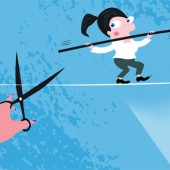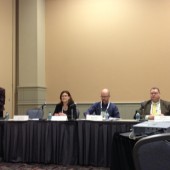Partnering with Sprint, the Charlotte Mecklenburg Library is allowing students who don’t have Wi-Fi at home to check out portable hotspots.
Growing Mobile | The Digital Shift
Smartphone ownership is quickly becoming the norm. According to the Pew Research Center’s “Technology Device Ownership: 2015” survey, released last fall, almost 70 percent of U.S. adults now own a smartphone, up from 35 percent in 2011. And 45 percent now own a tablet, up from ten percent in 2011. The 2015 Allstate/National Journal Heartland […]
Educators On the Open eBooks App: Needs Work
The free books from the Open eBooks app could be a huge boon for students, but it’s not set up to benefit some kids who need it the most, and other kinks need to be worked out.
Queens Library Develops Innovative New Tablet Platform Using Superstorm Sandy Donation | TDS14
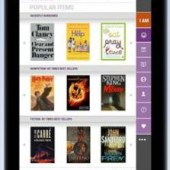
When superstorm Sandy hit the east coast in October 2012, the Queens Library (QL) in New York was among many northeastern library systems affected. QL persevered, continuing to offer crucial services in storm-ravaged communities while rebuilding damaged branches. The system also managed to turn a generous corporate donation into an innovative new platform for tablet computers, enabling a tech lending program that has since continued to grow.
The Policy Gap
The following is an excerpt from Digital Literacy and Digital Inclusion: Information Policy and the Public Library (Rowman & Littlefield, Aug. All rights reserved.) Federal policies in the United States rely on public libraries to promote digital literacy and digital inclusion. Yet, public libraries are predominantly excluded from the funding made available for digital literacy and digital inclusion, as well as from the decision-making processes.
CPL, NYPL WiFi Hotspot Lending Programs Funded by Knight Foundation Grants

In an effort to address the lack of broadband access among low-income residents, the Chicago Public Library (CPL), and New York Public Library (NYPL) on June 23 announced new programs that will allow patrons to check out and take home wifi hotspots. NYPL’s “Check Out the Internet,” and CPL’s “Internet to Go” programs are made possible, in part, by grants awarded this week by the Knight News Challenge, a competition developed by the John S. and James L. Knight Foundation in partnership with the Ford Foundation and Mozilla, to fund and promote projects committed to making the Internet an open, equitable platform.
Queens Library Tests Job Application Kiosk with Real-Time Video
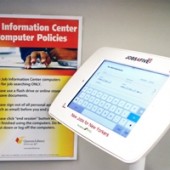
Building on the success of its existing job search and job training programs, the Queens Library recently began testing a new touch-screen job search kiosk at its central branch in Jamaica, Queens. The kiosk is driven by Apploi, a mobile app launched in April 2013 by recruitment software and services provider Innovate CV, and is […]
IMLS Holds Hearing on the Need for Broadband in Libraries
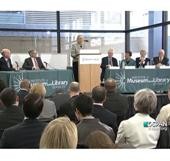
Though broadband Internet access has become more common in U.S. households during the past decade, the digital divide has not yet been bridged. In fact, challenges now loom larger than ever for households without broadband, said Richard Reyes-Gavilan, Chief Librarian for the District of Columbia Public Library (DCPL) during his opening remarks at the “Libraries and Broadband: Urgency and Impact,” public hearing hosted by the Institute for Museum and Library Services (IMLS) on April 17. According to IMLS estimates, about 100 million Americans don’t have access to high-speed Internet at home, while 19 million don’t have any Internet access at home.
